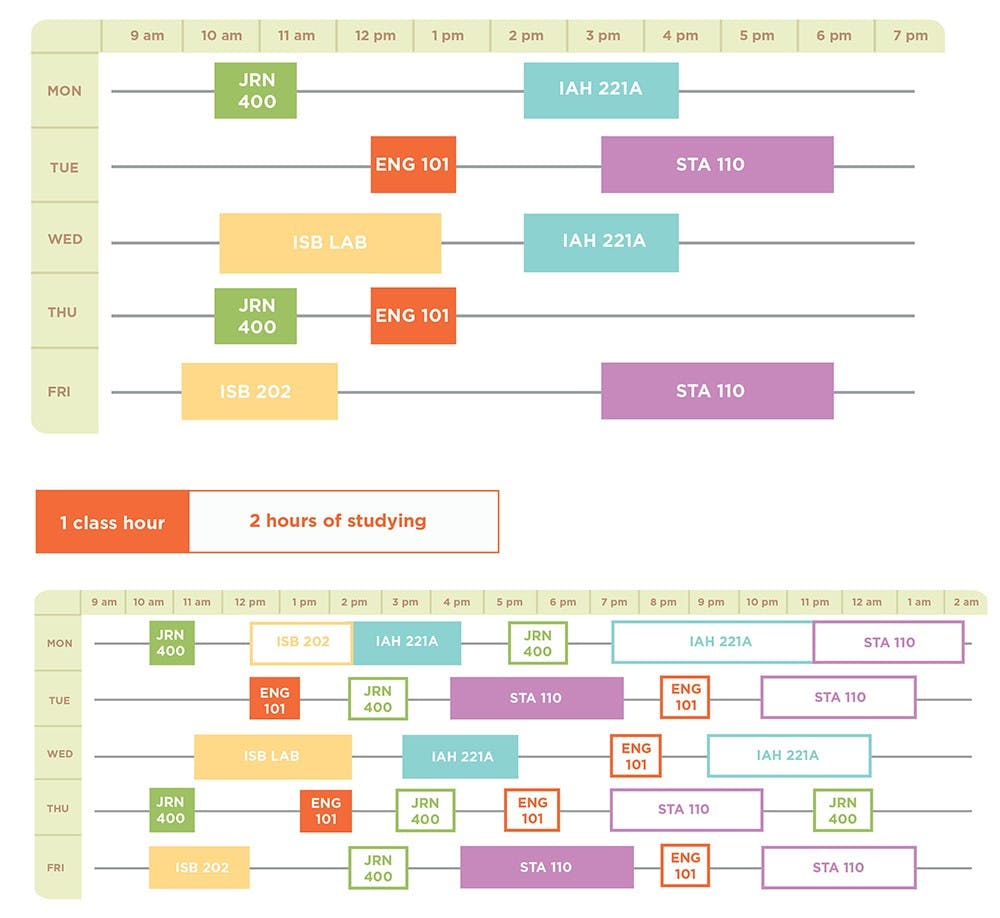Time management is an essential skill in order to survive college. Between extracurriculars, classes and studying, why is it that students always seem to be short on time, even with diligently planned schedules?
The answer might be attached to credit hours, which often determine a student’s work schedule, study load and stress level.
In 2009, the U.S. Department of Education’s definition of a credit hour included the ratio of “not less than one hour of classroom or direct faculty instruction and a minimum of two hours of out of class work for each week for approximately fifteen weeks for one semester.”
However, more and more students in recent years are not following the guideline of two hours of study for every hour spent in the classroom.
According to a 2012 report by Amy Laitinen of the New America Foundation , the U.S. Department of Education said the credit hour is a possible “illusion — studies suggest that typical students work nothing close to two hours out of class for every one hour in — but it is an illusion that everyone understands and agrees to believe.”
When asked if he spent two hours studying per hour that he spent in class, supply chain management sophomore Kyle Baker said, “Hell no! That would be insane. How could you either work or have a social life?”
Human biology and pre-dental senior Lizzy Yesakov said there is “no way” she spends that much time outside of each class preparing and studying.
Yesakov said she works from home about 5–10 hours a week, attends class 13 hours per week, and then spends a few hours studying each day.
“If I do have an exam I’ll usually study about 1–2 hours every day starting a week before the exam then move into 3–4 hours two days to exam day,” Yesakov said.
Theatre freshman Katelyn Hodge said she studies based on what is occurring next class, typically requiring between one and two hours. Broken down, she attends 12 hours of class and spends around 14 hours studying. According to the Department of Education, Hodge is still 10 hours short of the minimum out-of-class preparation time.
Academic Advisor Sandra Eagan-Hill said the number of credits she tells a student to take depends on their academic performance as well as what the student feels he or she is capable of.
Every advising recommendation is personal because it depends on the classes a student is looking to enroll in and significantly on time management skills, Eagan-Hill said.
Yesakov said she takes her personal sanity into account and also how many credits she has remaining until graduation. Since she is planning on staying at MSU for a fifth year, she is able to spread her credits out more.
Hodge said, “I debate how busy I think I’ll be with extracurriculars that semester (and) how many classes I want to take.”
She planned to take 18 credits next semester, but after being cast in a production, she dropped her course load down to 16.
Hodge said she typically enrolls in more than the average number of credits to get the most out of her time at the university and complete her required courses early on.
Though she said she worries about being overloaded, she’s also excited to get to her junior year and take only courses within her field of study.







